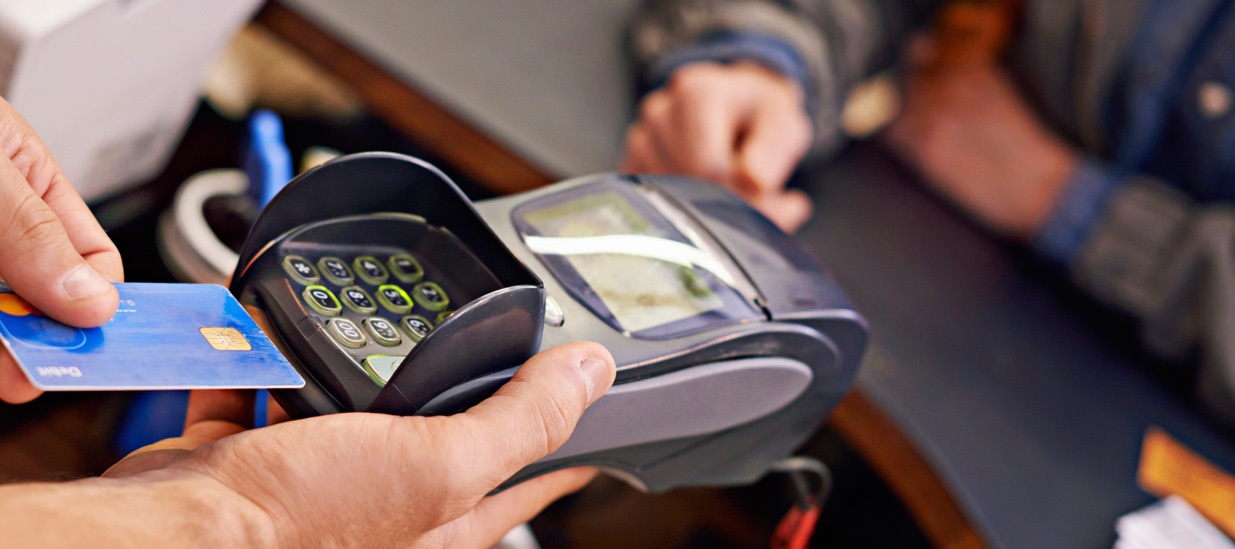
The number of Americans using credit cards for purchases, and the number of businesses that accept these card payments, is steadily rising — but soon, credit card processing fees will increase too. The Wall Street Journal is reporting that Visa and Mastercard, the two largest U.S. card networks, will raise credit card processing fees beginning in April. For small business owners, this is likely unwelcome news in a time when many merchants are concerned the cost of accepting credit cards is too high due to the bevy of charges and fees attached.
One major processing fee that will see changes is the “interchange fee,” or the price that merchants pay to the cardholder’s issuing bank when they make purchases with their credit or debit cards. This interchange fee is determined by card networks like Visa and Mastercard.
Keep more of your profit. Choose a credit card processor who offers fair and flexible Interchange Plus Pricing.
Merchants paid an estimated $64 billion in Visa and Mastercard credit and debit interchange fees last year, according to new data from an industry publication, the Nilson Report. That is up 12% from a year earlier and up 77% from 2012.
The dollar amount of interchange fees paid by stores, which has been surging in recent years, is at the
center of fights between merchants, card networks and large banks that issue cards, according to the Journal. Banks ultimately receive these fees; card networks at times increase them so that banks will issue or retain cards on their networks.
It's not only merchants who will be affected. In response to these fee increases, many businesses in turn raise prices for consumers — whether it’s a menu-wide price hike at a fast-casual restaurant or higher service fees at an auto repair shop — in order to protect profits.
The Journal reports that roughly 1 to 2.5 percent of prices for goods and services go to cover card fees, according to people familiar with merchant pricing. When the billions of dollars in fee increases are spread out across the customer base, they become extremely small per-transaction increases, but they don't go unnoticed by consumers — who will be affected whether they primarily use card or cash.
Card companies have repeatedly asserted that credit and debit cards result in more sales for businesses than would otherwise occur and that expenses tied to fraudulent card transactions and other costs need to be covered.
Merchants paid an estimated $64 billion in Visa and Mastercard credit and debit interchange fees last year, according to new data from an industry publication, the Nilson Report. That is up 12% from a year earlier and up 77% from 2012.
Those fees also help fund the points and cash back that banks pay to their cardholders when they redeem rewards, the Journal reported, which encourage customers to return to businesses and spend more per transaction. Card companies tend to increase at least some interchange fees every few years, while rewards programs have grown in popularity.
But an additional point of tension is that the upcoming processing fee increases aren't uniform across business category, size or credit card transaction volume. The Journal reports that top-name retailers such as Amazon.com Inc., Walmart Inc. and Costco Wholesale Corp. have negotiated special arrangements, according to people familiar with the matter.
The pushback against card fee increases isn't just confined to the U.S. In recent years, interchange fees on debit and credit cards that are paid in many European countries have been lowered and capped. While Visa and Mastercard have reached a proposed settlement with European Union regulators to lower the interchange fees merchants paid on debit and credit cards issued outside of the area, the same hasn’t happened in the U.S.
According to the Journal, a Visa spokeswoman said “Visa’s network fees are paid by our financial institution clients and used to enhance the safety, efficiency and innovation of our platform, and are set based on market conditions and to reflect the value we deliver.” She added that the new increases will impact fees that Visa hasn’t adjusted in at least three years.
A Mastercard spokesman declined to comment. Separately, returned merchandise purchased using Mastercard debit cards will in some cases become more expensive for stores, according to a person familiar with the matter. In some transactions, merchants won’t be reimbursed for the interchange fee that was paid on the initial transaction.
In addition, Discover Financial Services, both a network and a card issuer, is also preparing to increase certain interchange fees. This will include rewards credit cards used to shop at restaurants and when certain Discover credit cards are used for online shopping, according to a person familiar with the matter. According to the Journal, a Discover spokesman declined to comment.
Are you getting the best rate for your small business? We save our merchants 30% on credit card processing.
Other fees are on the rise, as well. Visa, the largest U.S. card network, is increasing several fees in April, according to people familiar with the matter. Unlike interchange fees that are paid to card issuers, these fees are collected by Visa.
Visa raised its “credit-card assessment fee” this year by 0.01% for most credit-card purchases made in the U.S.
While seemingly small on a percentage or flat-fee basis, the increased fees that Visa will put in place during the first four months of the year are expected to cost U.S. merchants at least an additional $570 million through April 2020, according to estimates by merchants-payments consulting firm CMSPI. A Visa spokeswoman disputed the figure, saying it was inflated, but didn’t provide further detail.
But network fees aren’t the only additional charges merchants face. There are also other fees charged by firms that process merchants’ card transactions. Those, which include the network fees, totaled $14.8 billion on Visa and Mastercard debit and credit transactions in 2018, up 10% from a year earlier and 70% from 2012, according to the Nilson Report.










 Facebook
Facebook Twitter
Twitter LinkedIn
LinkedIn Youtube
Youtube Glassdoor
Glassdoor